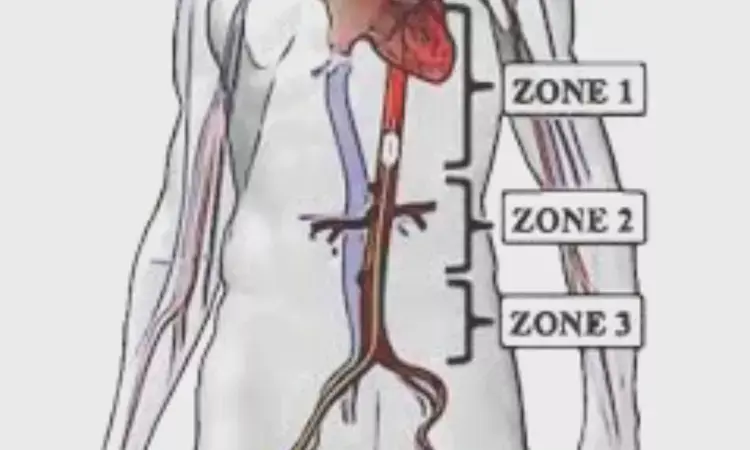- Home
- Medical news & Guidelines
- Anesthesiology
- Cardiology and CTVS
- Critical Care
- Dentistry
- Dermatology
- Diabetes and Endocrinology
- ENT
- Gastroenterology
- Medicine
- Nephrology
- Neurology
- Obstretics-Gynaecology
- Oncology
- Ophthalmology
- Orthopaedics
- Pediatrics-Neonatology
- Psychiatry
- Pulmonology
- Radiology
- Surgery
- Urology
- Laboratory Medicine
- Diet
- Nursing
- Paramedical
- Physiotherapy
- Health news
- Fact Check
- Bone Health Fact Check
- Brain Health Fact Check
- Cancer Related Fact Check
- Child Care Fact Check
- Dental and oral health fact check
- Diabetes and metabolic health fact check
- Diet and Nutrition Fact Check
- Eye and ENT Care Fact Check
- Fitness fact check
- Gut health fact check
- Heart health fact check
- Kidney health fact check
- Medical education fact check
- Men's health fact check
- Respiratory fact check
- Skin and hair care fact check
- Vaccine and Immunization fact check
- Women's health fact check
- AYUSH
- State News
- Andaman and Nicobar Islands
- Andhra Pradesh
- Arunachal Pradesh
- Assam
- Bihar
- Chandigarh
- Chattisgarh
- Dadra and Nagar Haveli
- Daman and Diu
- Delhi
- Goa
- Gujarat
- Haryana
- Himachal Pradesh
- Jammu & Kashmir
- Jharkhand
- Karnataka
- Kerala
- Ladakh
- Lakshadweep
- Madhya Pradesh
- Maharashtra
- Manipur
- Meghalaya
- Mizoram
- Nagaland
- Odisha
- Puducherry
- Punjab
- Rajasthan
- Sikkim
- Tamil Nadu
- Telangana
- Tripura
- Uttar Pradesh
- Uttrakhand
- West Bengal
- Medical Education
- Industry
Zone 1 REBOA aortic occlusion effective alternative to resuscitative thoracotomy after severe hemorrhagic shock: JAMA

USA: Zone 1 endovascular balloon occlusion of the aorta (REBOA) provided similar severe hemorrhagic shock survival than resuscitative thoracotomy (RT) for patients requiring aortic occlusion (AO), according to comparative effectiveness research results.
The study's findings, published in JAMA Surgery, provide the ethically needed equipoise between these treatment approaches to allow the planning of an RCT (randomized controlled trial) to establish the effectiveness and safety of zone 1 REBOA for aortic occlusion in trauma resuscitation.
Aortic occlusion is a lifesaving treatment for severe traumatic hemorrhagic shock; however, there is confusion regarding whether AO should be done via resuscitative thoracotomy or endovascular balloon occlusion of the aorta in zone 1.
Alexis L. Cralley from the University of Colorado, Denver, and colleagues aimed to compare outcomes of AO via RT vs REBOA zone 1 while addressing the question, "is REBOA zone 1 a safe and effective alternative to resuscitative thoracotomy in the resuscitation of patients with severe traumatic hemorrhagic shock?"
For the study, the researchers used a multicenter registry of postinjury AO from 2013 to 2021. Aortic occlusion via zone 1 REBOA (above celiac artery) was compared with resuscitative thoracotomy performed in the emergency department of facilities experienced in both procedures and documented in the AORTA (Aortic Occlusion for Resuscitation in Trauma and Acute Care Surgery) registry. They used PSM (propensity score matching) and multivariate subgroup analysis to control for confounders. The study was set in an emergency department where AO was performed via RT or REBOA, and participants were adult trauma patients aged 16 years and above.
Survival in these patients was assessed (primary outcome). Secondary outcomes included ICU-free days, discharge Glasgow Coma Scale score, ventilation-free days (VFDs), and Glasgow Outcome Score (GOS).
The study led to the following findings:
- A total of 991 patients (median age, 32 years; 81.9% were males) with a median (IQR) Injury Severity Score of 29 were included.
- Of the participants, 30.9% had AO via REBOA zone 1, and 69.1% had AO via RT. PSM selected 112 (56 pairs) comparable patients.
- REBOA zone 1 was associated with a statistically significant lower mortality compared with RT (78.6% vs 92.9%).
- There were no significant differences in VFD greater than 0 (REBOA, 18.5% vs RT, 7.1%), ICU-free days more important than 0 (REBOA, 18.2% vs RT, 7.1%), or discharge GOS of 5 or more (REBOA, 7.5% vs RT, 3.6%).
- Multivariate analysis confirmed the survival benefit of REBOA zone 1 after adjustment for significant confounders (relative risk [RR], 1.25).
- In all subgroup analyses (cardiopulmonary resuscitation on arrival, traumatic brain injury, chest injury, pelvic injury, blunt/penetrating mechanism, systolic blood pressure ≤60 mm Hg on AO initiation), REBOA zone 1 offered either similar or superior survival.
"Our findings suggest that REBOA zone 1 aortic occlusion is a safe and effective alternative to resuscitative thoracotomy," the authors conclude.
Reference:
Cralley AL, Vigneshwar N, Moore EE, et al. Zone 1 Endovascular Balloon Occlusion of the Aorta vs Resuscitative Thoracotomy for Patient Resuscitation After Severe Hemorrhagic Shock. JAMA Surg. Published online December 21, 2022. doi:10.1001/jamasurg.2022.6393
Dr Kamal Kant Kohli-MBBS, DTCD- a chest specialist with more than 30 years of practice and a flair for writing clinical articles, Dr Kamal Kant Kohli joined Medical Dialogues as a Chief Editor of Medical News. Besides writing articles, as an editor, he proofreads and verifies all the medical content published on Medical Dialogues including those coming from journals, studies,medical conferences,guidelines etc. Email: drkohli@medicaldialogues.in. Contact no. 011-43720751


